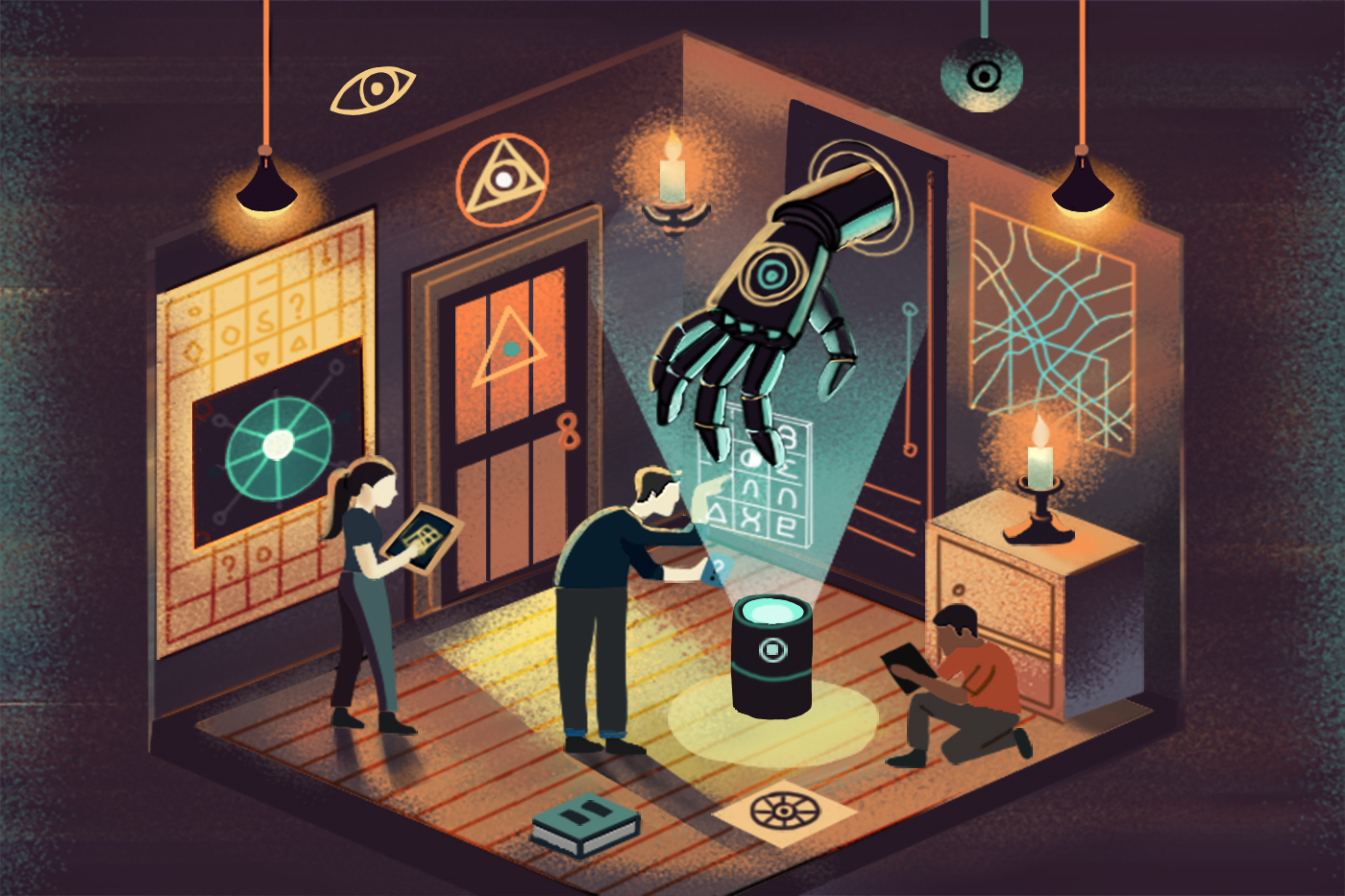Imagine a learning environment where the thrill of discovery and the challenge of problem-solving come together in a seamless blend of virtual and augmented reality. At Northeastern University, researchers are pioneering an innovative approach to education by integrating escape room techniques with cutting-edge AI technology. This exciting development promises to transform how students engage with their studies, making learning both immersive and deeply personal.
Unlocking the Potential of AI in Education
In this groundbreaking initiative, the team at Northeastern is exploring how the dynamic and interactive nature of escape rooms can be harnessed to enhance educational experiences. By incorporating AI, they aim to guide students through complex learning scenarios without disrupting their immersion. The goal is to create an environment where students can explore, reflect, and solve problems independently, all while receiving personalized, adaptive assistance.
To achieve this, researchers are conducting interviews with escape room facilitators, gathering insights into the art of maintaining engagement and motivation in a high-stakes, puzzle-solving context. This valuable knowledge is being used to develop AI models that can provide the right hints at the right time, encouraging students to think critically and creatively.
Personalized Learning Journeys
The beauty of this approach lies in its ability to tailor the learning experience to each student's unique needs and abilities. By leveraging AI, educators can offer a level of personalization that was previously unimaginable. Students are empowered to take control of their learning journey, with AI acting as a supportive guide rather than a prescriptive instructor.
"Our aim is to create an educational experience that is as engaging and motivating as an escape room, but with the added benefit of personalized learning paths," says Dr. Emily Chen, lead researcher on the project. "We want students to feel like they're on an adventure, where every challenge is an opportunity for growth and discovery."
Looking to the Future
As this innovative project progresses, the potential applications of AI-enhanced escape rooms in education are vast. From STEM subjects to humanities, the ability to create immersive, interactive learning environments could revolutionize the way we think about teaching and learning. By fostering a sense of curiosity and resilience, this approach not only prepares students for academic success but also equips them with the skills needed to navigate an ever-changing world.
Originally published at https://news.northeastern.edu/2025/05/14/ai-escape-room-education/
ResearchWize Editorial Insight
The article "AI-Enhanced Escape Rooms: A New Era in Education" is a beacon of innovation for both students and researchers, offering a glimpse into the future of learning environments that are as engaging as they are educational. For teachers, this concept of AI-enhanced escape rooms presents a transformative opportunity to reimagine classroom experiences. It’s about creating spaces where students are not just passive recipients of information but active participants in their learning journey.
Imagine a classroom where each student feels like they are on an adventure, where every puzzle or challenge is an opportunity for personal growth. This approach aligns beautifully with inclusive education principles, as it allows for personalized learning paths that cater to diverse needs and abilities. The AI component acts as a supportive guide, offering hints and encouragement tailored to each student, which can be especially empowering for those who might struggle in traditional learning settings.
For researchers, this initiative opens up a rich field of study in educational technology and pedagogy. It challenges us to think deeply about how we can harness AI not just to enhance learning but to make it more equitable and accessible. The insights gathered from escape room facilitators about maintaining engagement and motivation can inform broader educational practices, potentially leading to more dynamic and responsive teaching methods.
In essence, this article matters because it highlights a shift towards more immersive, student-centered learning experiences. It encourages educators to reflect on their roles as facilitators of discovery and problem-solving, rather than mere conveyors of knowledge. As we look to the future, the integration of AI in educational settings promises not only to enhance academic success but also to instill a lifelong love of learning and curiosity in students, preparing them for the complexities of the world beyond the classroom.
Looking Ahead
Collaboration will be at the heart of this new educational landscape. AI can facilitate group learning experiences by bringing together diverse minds to solve challenges, much like a team working through an escape room. By encouraging students to share ideas and perspectives, AI helps cultivate a community of learners who value each other's contributions and learn from one another.
Inclusion will be a cornerstone of AI's role in education. It will ensure that learning experiences are accessible and equitable for all students, regardless of their backgrounds or abilities. By adapting content and teaching methods to meet individual needs, AI can help break down barriers, making education a shared journey where everyone has the opportunity to succeed.
The emotional side of schooling will also flourish in this AI-enhanced environment. By recognizing and responding to students' emotional cues, AI can create a supportive atmosphere that fosters resilience and confidence. This empathetic approach helps students navigate the ups and downs of their educational journey, ensuring they feel valued and understood.
As we look to the future, the potential of AI in education is vast and promising. By focusing on collaboration, inclusion, and emotional well-being, we can create learning environments that not only prepare students for academic success but also equip them with the skills and mindsets needed to thrive in an ever-changing world.
Originally reported by https://news.northeastern.edu/2025/05/14/ai-escape-room-education/.
Related Articles
- AI in medical education
- From Policy to Practice: How AI is Shaping the Future of Education
- Microsoft and FFA help students use smart sensors and AI to learn about the future of farming and technology
📌 Take the Next Step with ResearchWize
Want to supercharge your studying with AI? Install the ResearchWize browser extension today and unlock powerful tools for summaries, citations, and research organization.
Not sure yet? Learn more about how ResearchWize helps students succeed.

